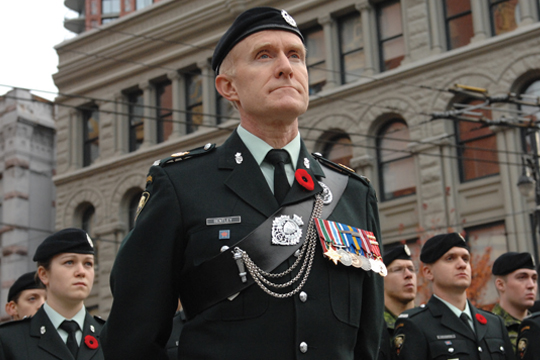
The Atlas Institute for Veterans and Families is now up and running, researching the issues and supporting its constituents.
The Atlas Institute for Veterans and Families had its genesis in the Veterans Affairs minister’s federal mandate letter in 2015. Little was known at the time about exactly how a new centre of excellence being created to support Canadian Armed Forces (CAF) and Royal Canadian Mounted Police (RCMP) veterans and their families would function. It was clear, however, that it represented a new direction and a commitment that came to fruition when funding began in 2017.
Operations formally began in 2019 and since then, the institute has had an exponential impact on the community.
President and CEO Fardous Hosseiny said the first two years were clearly about building the right foundation for this new organization, which aims to support the mental health and well-being of this community. “We knew from a functional perspective that the institute had to be built with the input of veterans and families, so early on we developed a collaborative approach, including four reference groups for veterans, families, service providers and researchers. By using a co-development, co-creation model, we were able to identify not only the issues, but solutions that will hopefully make support easier to access and service providers more informed about the unique needs of this community. Ultimately, the community informs and guides everything we do.”
Hosseiny added that some of the earliest work was to develop a five-year strategic plan through extensive consultation with RCMP and military veterans and their family members as well as service providers and researchers working with this community. “The overarching message that emerged was that veterans and families need to know that we have their back to help create access to safe, meaningful, culturally competent resources and supports to improve health and well-being for themselves and their loved ones.”
Since its inception, the institute has made meaningful progress. There has been limited Canadian-specific research to date, but Atlas has already begun 28 research projects, engaged in more than 14 research partnerships nationally and internationally, published 20 manuscripts with four more submitted for publication. It is building deep partnerships with 24 formal ones established to date and hundreds of stakeholders engaged through project advisories, reference groups and communities of practice and other consultation opportunities.
While not a service provider, through its commitment to excellence, the institute is creating easy-to-access online resources for veterans and families, which include such topics as post-traumatic stress, moral injury, peer support, military sexual trauma, intimate partner violence and suicide among veterans. And, it provides no-cost training to health-care providers who work with the community to create capacity.
Atlas also undertook a research and knowledge gap analysis that identified important issues such as the experiences and needs of women veterans as key research and knowledge mobilization gaps. In response, Atlas recently completed a dialogue series with women veterans intended to contribute to the development of a research project focused on the mental health of women veterans.
As the institute’s work ramps up, Hosseiny says there is also a significant value-add for the community to have Canadians better understand what those who serve contribute to our overall society, and the impact this has on themselves and their families. “This goes back to that concept of that comfort that we do indeed have their back. And we will do this by continuing to grow our stakeholder network, our research, our resources and our public presence in support of them.”

